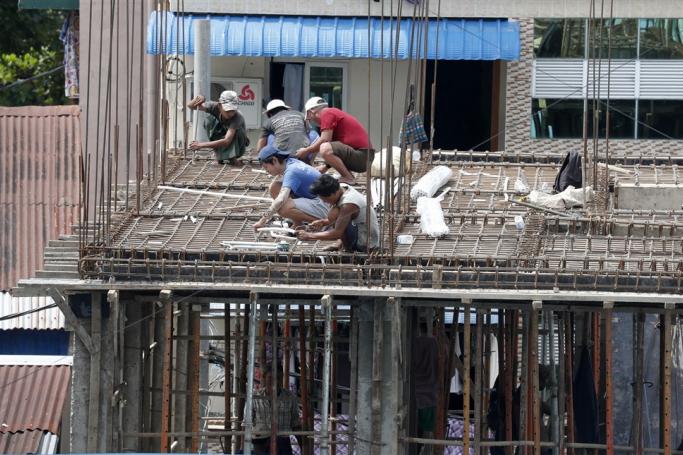On the occasion of the 133rd International Workers’ Day, also known as May Day, Solidarity of Trade Union Myanmar (STUM) has declared their demands for improved conditions and increased wages for workers in Myanmar, according to the organization’s official statement.
Specifically, STUM is calling for a raise in the daily minimum wage from 4,800 Myanmar Kyat (about US$1.7) to 10,000 Kyat (about US$3.5).
The STUM’s statement emphasized that the workers, who have been oppressed for successive eras, have participated from the frontlines in every fight for the freedom of the whole mankind and to resist any oppressions along with all different classes.
STUM called for an increase in the minimum wage to 10,000 Kyat per day, decent and respectful workplaces, a living wage appropriate with the current prices and other modern living costs, and the ability for the Workplace Coordination Committees (WCC) to organize only with genuine representatives of the workers.
The STUM emphasized that the workers can achieve their rights only by their solidarity and stated that a new society could also be able to build with the strength and solidarity of the whole and multiple oppressed classes.
STUM came into existence in 2016 when a group of female workers, who were discontented with the male-dominated Myanmar Trade Union Federation, decided to form their own union. Following the military coup in Myanmar in 2021, STUM has taken part in the ensuing protests.
STUM leader Myo Myo Aye was among over 35 opposition figures arrested by the military junta on 15 April 2021, which drew widespread criticism from the international community. After being detained for several months, she was finally released in October the same year.
“Because of the coup in Myanmar, the economic situation is in a downward spiral and the daily minimum wage of 4,800 Kyats is not enough for the workers as they are suffering from the effects of rising commodity prices. Therefore, this demand is a reminder that it is time to change the daily minimum wage," Myo Myo Aye, chairperson of STUM, recently told Mizzima.
“We have never been able to obtain workers' rights under any [Myanmar] government,” she added.
“Every year when we issue our May Day statements, we always ask for a raise in wages that is appropriate with the times. We have another issue related to Workplace Coordination Committees (WCC). We object to the fact that the workers' representatives participating in the WCC are chosen by
the employers, not by the workers. We will demand to elect genuine representatives of workers,” said Myo Myo Aye.
An anonymous labour leader told Mizzima that there were a number of prevalent issues in the work place that need addressing.
“It's crucial for workers' rights to have a good workplace. Currently, sexual abuse, coercion, and violations of labour rights are prevalent in the workplace. To create a good workplace, we need to address these issues and fix them. Currently, workers have to work without safety measures,” the labour leader told Mizzima.
Maung Moe, central executive of the Federation of General Workers Myanmar (FGWM), spoke to Mizzima about how workers' rights have not been fully recognized even under previous civilian governments and how the current military dictatorship has made it worse.
"Workers' rights have not been fully realized even under previous civilian governments. Complaints about violations of workers' rights were made to relevant labour offices, but there were no specific solutions provided to the workers. The department protected only the employer despite the number of laws violated. Dissatisfied with the resolution of violations, workers went to the Chief Minister's Office to complain. However, there were cases where the workers who complained were prosecuted by the Chief Minister's Office,” he told Mizzima.
“Now, under the current military dictatorship, the problems faced by workers are getting worse. The workers' demands are not being met, and there are numerous challenges. Companies are not taking responsibility for workers' rights violations. Therefore, workers are participating in campaigns to make the demands of the entire workforce known internationally. However, only if the revolution is successful will workers will be able to demand their rights more effectively.”
Since the military coup in Myanmar, there has been a significant increase in labour rights violations, with some employers dismissing union members who advocate for workers' rights and reporting them to the junta for arrest.












